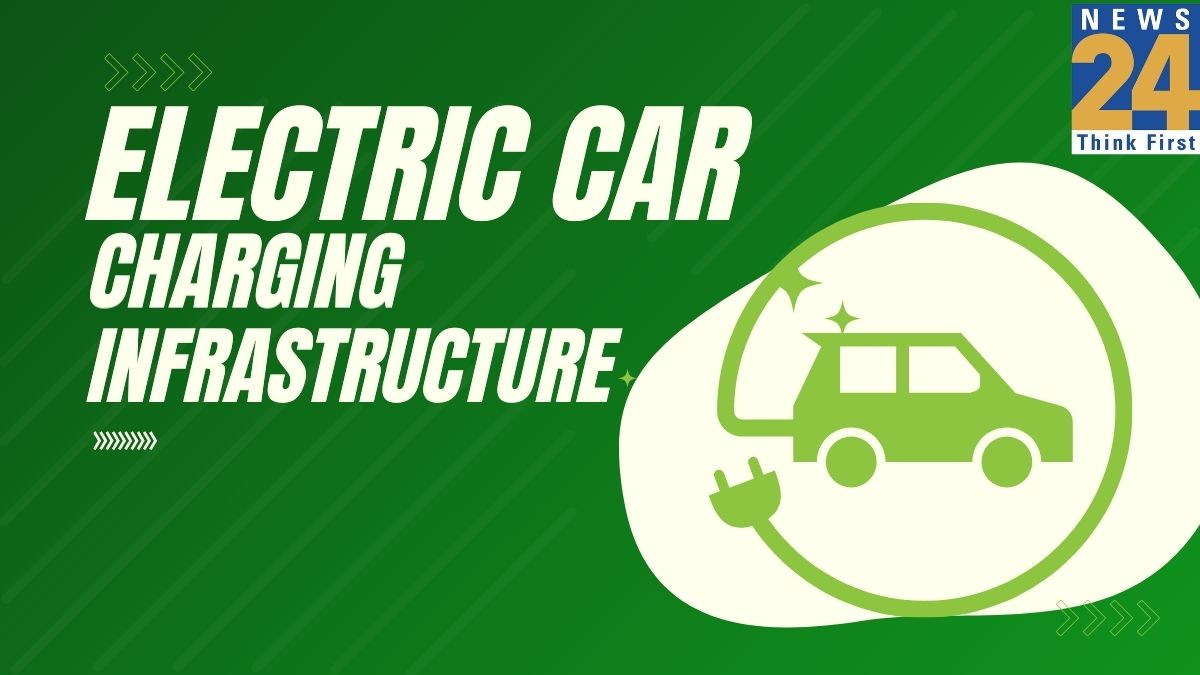India needs around 1.32 million (13.2 lakh) EV charging stations by 2030, according to a CII (Confederation of Indian Industry) report “Charging Infrastructure for Electric Vehicle.” To achieve a ratio of 1 charging station for every EV, more than 4,00,000 charging stations should be installed every year till 2030. According to heavy industries minister Mahendra Nath Pandey, the EV charging infrastructure needs massive investment in the next 6 years. By 2030, at least 18,000 public electric car charging stations are needed to cater for the needs of the 4+ million (40 lakh) population in the top 9 cities in India.
According to reports, the petroleum ministry and the heavy industries are set to deploy 22,000 EV charging stations by December 2024. To set up these charging stations, the Indian government has reportedly deployed Rs. 800 crore.
NITI Aayog’s Assessment on Electric Car Charging Infrastructure in India
According to NITI Ayog’s eAMRIT, the large-scale adoption of electric cars and other vehicles in India is facing roadblocks due to inadequate EV charging infrastructure in India. To achieve the sustainable mobility target of India, creating a large network of robust charging infrastructure is the need of the hour.
Under the FAME II scheme, the Union Government of India has allocated Rs. 1,000 crore to set up 2,636 EV charging stations across 62 cities, located in twenty-four Indian states or Union Territories.
According to Amitabh Kant (CEO of NITI Aayog), the success of continued EV charging infra development and integration will depend heavily on “policy and regulatory environment, which must also account for grid stability.”
Also Read: Charging Infrastructure Schemes For Electric Vehicles In India – Know Now!
How to Improve EV charging infrastructure in India by 2030?
To solve the problem of EV charging infrastructure in India, it is important to learn about the entities that will bring in the coveted changes.
The EV charging infrastructure includes 3 aspects:
- EV charging stations
- Battery swapping stations
- Traction battery-based businesses
Any one of the following six can be the EV charging station owners:
- Public authorities
- Power utility
- Charging infra manufacturers
- Charging station operators
- Vehicle manufacturers or fleet operators
- Location owners or real estate
To accelerate the EV charging infrastructure in India, two players should play important roles and they are:
- Charging Infrastructure Manufacturers: Some of the major players in this field are Delta Electronics, RRT, Okaya, Exicom, ABB India, and Mass Tech.
- Charging Points Operators: Some of the major players working as CSOs include Tata Power, Charge Zone, Volttic, Fortum India, EESL, and Magenta Group.
Battery services will play a very important role in promoting the uptake of EVs in India. This is mainly because around 40% of the total EV cost is due to the batteries. There are mainly 4 processes that can enable EV owners to use EV batteries more cost-effectively:
- Battery recycling: Gravita India is working on this model.
- Battery subscription: Ola Care, SWYTCHD, Kinetic, and Ather are the leading companies offering batteries to EV owners through a monthly subscription model.
- Pay-as-you-go: Sun Mobility is the leading company that has adopted the pay-as-you-go model.
- BaaS (Battery as a Service): Esmito and Sun Mobility are the key players.
Also Read: Government Subsidy On Electric Vehicles In 2024: Check Now!
Final Words
A KPMG report has projected that India will need 2.9 million public charging stations by 2030 as the total number of electric vehicles plying on the Indian roads will be around 102 million. Can India achieve EV charging infrastructure in India by 2030? A committed Indian government towards achieving its Paris Agreement target on carbon emissions and a public-private partnership will surely steer India towards more sustainable and eco-friendly transportation in India in the future.













